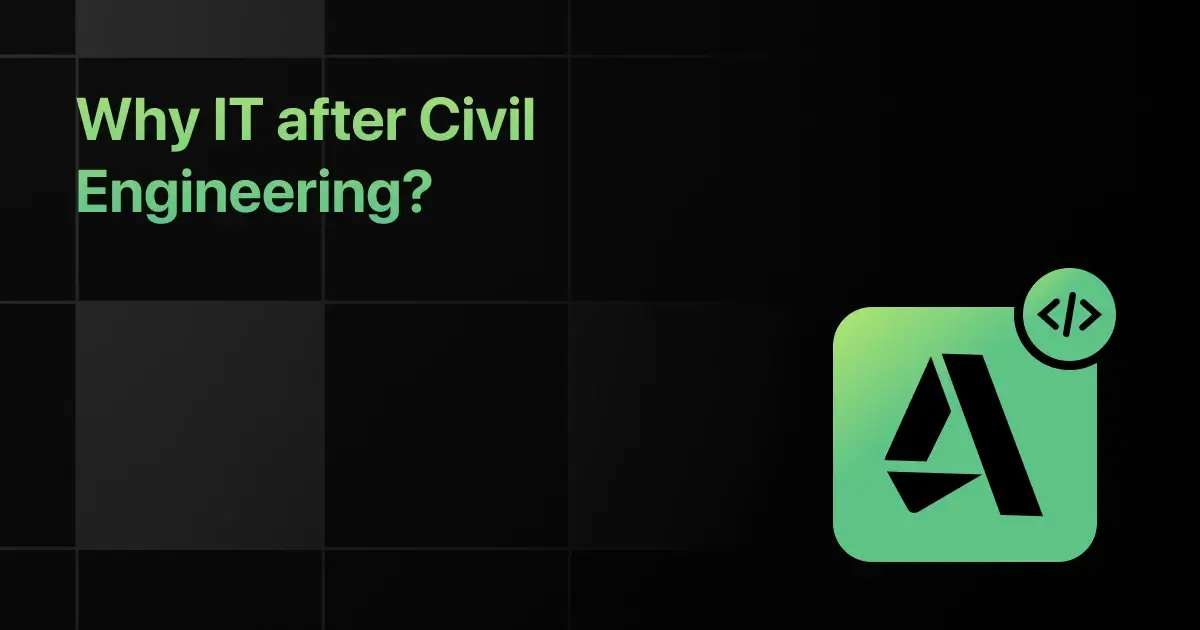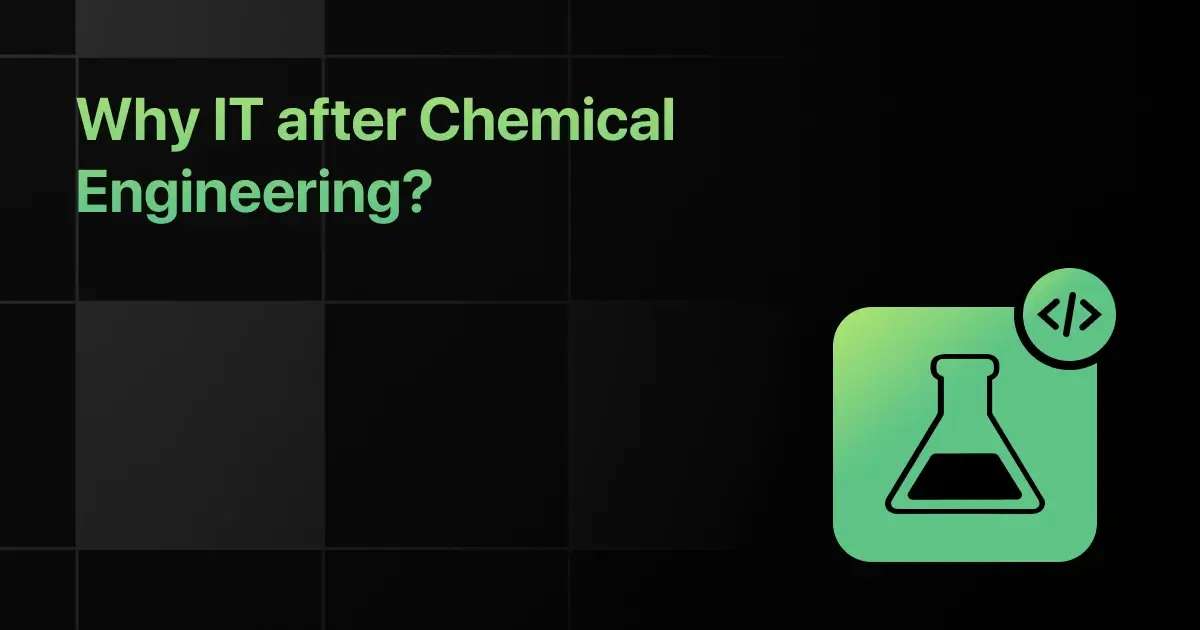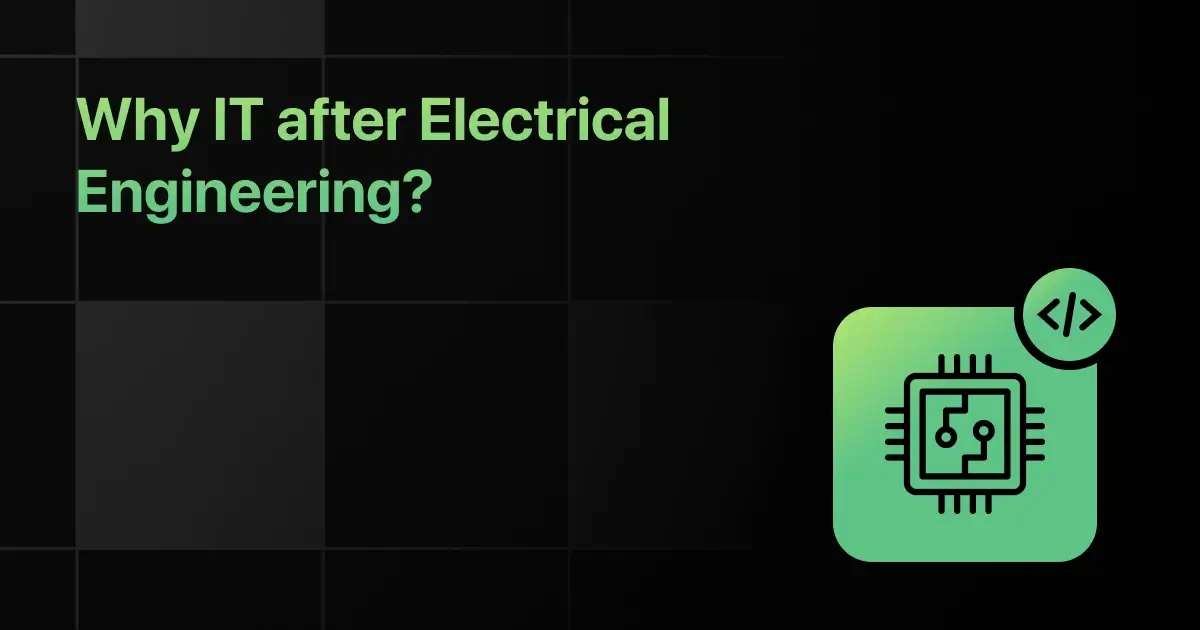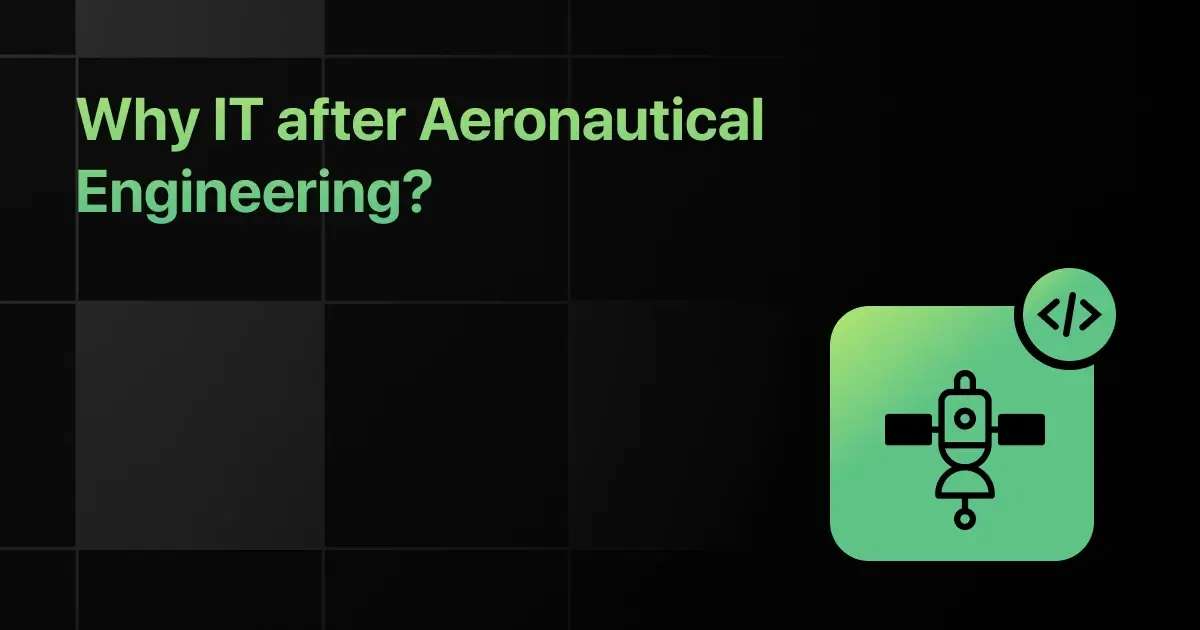How to Answer: Why IT After Civil Engineering?

Switching from civil engineering to IT might sound like a big jump—after all, you’ve spent years learning about buildings, bridges, and construction, so why change?
It’s a question that pops up a lot: why leave a solid field like civil engineering for something like IT, and how do you explain it in an interview?
In this blog, you’ll get the answer “Why IT after civil engineering?” that show off your technical strengths and make your switch sound smart and confident.
Best Ways to Answer: Why IT After Civil Engineering?
Below are the best ways to answer: ‘Why IT After Civil Engineering?’ in an interview:
1. How Civil Engineering and IT Work Together
Civil engineering and IT aren’t as different as they seem—think smart cities, construction software, or digital planning tools.
Your civil background helps you understand structures, and IT lets you improve them with tech.
Template Version:
“I’m [Your Name], a civil engineer who enjoyed [what you liked about civil engineering].
I moved to IT because I saw how [specific IT skill, e.g., software/data tools] could improve [specific civil thing, e.g., designs/planning].
My civil experience helps me understand [structures/projects], and IT lets me [what you want to do with IT].”
Logic Behind This?
This template ties your civil past to IT in a simple way. It shows you’re building on what you know, not starting over.
Mistakes to Avoid?
- Don’t say IT has nothing to do with civil—it makes your switch look random.
- Don’t only talk about civil stuff—add why IT pulls you in.
- Don’t go on too long—keep it short so they stay hooked.
2. Why IT Felt Like the Right Move for My Career
IT is growing fast with tons of jobs, and moving from civil engineering lets you use your technical brain in a field that’s hot right now, like data analysis or software for construction.
Template Version:
“I’m [Your Name], a civil engineer who worked on [what you did in civil engineering].
I chose IT because it’s [why it’s growing, e.g., full of jobs/fast-moving], and I can use my skills to learn [specific IT skill, e.g., coding/data].
It’s a strong way to [career goal, e.g., grow/move forward].”
Logic Behind This?
This template keeps it practical and shows you’re thinking ahead.
Mistakes to Avoid?
- Don’t just say IT has better pay—it sounds shallow.
- Don’t leave out your civil roots—connect them to IT.
- Don’t use big words—keep it simple so they get it quick.
3. Getting Excited About Tech That’s Changing Construction
IT is behind cool stuff like Building Information Modeling (BIM), drones, or smart infrastructure—things civil engineers already care about.
It’s fun to jump into tech that’s shaping the future of your field.
Template Version:
“I’m [Your Name], a civil engineer who enjoyed [what you liked about civil engineering].
I chose IT because I’m excited about [specific tech, e.g., BIM/drones], which connects to my [specific civil skill, e.g., design/planning].
It’s great to work on [what excites you, e.g., future tech/construction].”
Logic Behind This?
This template lets your excitement show and links your switch to real passion and skills.
Mistakes to Avoid?
- Don’t pick tech you don’t like—it’ll sound fake.
- Don’t skip your civil side—tie it to the tech you choose.
- Don’t overdo it—keep it real so they trust you mean it.
Final Words
Going from civil engineering to IT can feel like a challenge, but it’s a great move if you use what you’re good at.
Try these answers to explain your switch, and you’ll sound sharp and ready in any interview!
Frequently Asked Questions
1. What are the main reasons civil engineers move to IT?
The main reasons civil engineers move to IT are more job options, growing demand for tech skills, and the chance to work on tools that improve construction.
2. How can a civil engineer justify switching to IT in an interview?
A civil engineer can justify switching to IT in an interview by showing how their skills match IT needs and explaining their excitement for tech’s role in the future.
3. What skills from civil engineering are useful in IT?
Skills from civil engineering that are useful in IT include planning, analyzing designs, and understanding projects, which help with software or data work.
4. What are the best IT fields for civil engineers?
The best IT fields for civil engineers are Building Information Modeling (BIM), IoT, and software development, where their construction knowledge shines
5. Is coding necessary for civil engineers to enter IT?
No, coding isn’t always necessary for civil engineers to enter IT, but it’s a big help for most roles and speeds up the switch.
6. What certifications can help a civil engineer enter IT?
Certifications that can help a civil engineer enter IT include Python, AutoCAD with IT focus, or cloud computing courses like AWS.
7. Can a civil engineer get into IT without experience?
A civil engineer can get into IT without experience by learning basic tech skills or getting certifications to show they’re ready for IT jobs.
Related Posts

How to Answer: Why IT After Chemical Engineering?
Switching from chemical engineering to IT might feel like a big change—after years of working with reactions, processes, and materials, …








